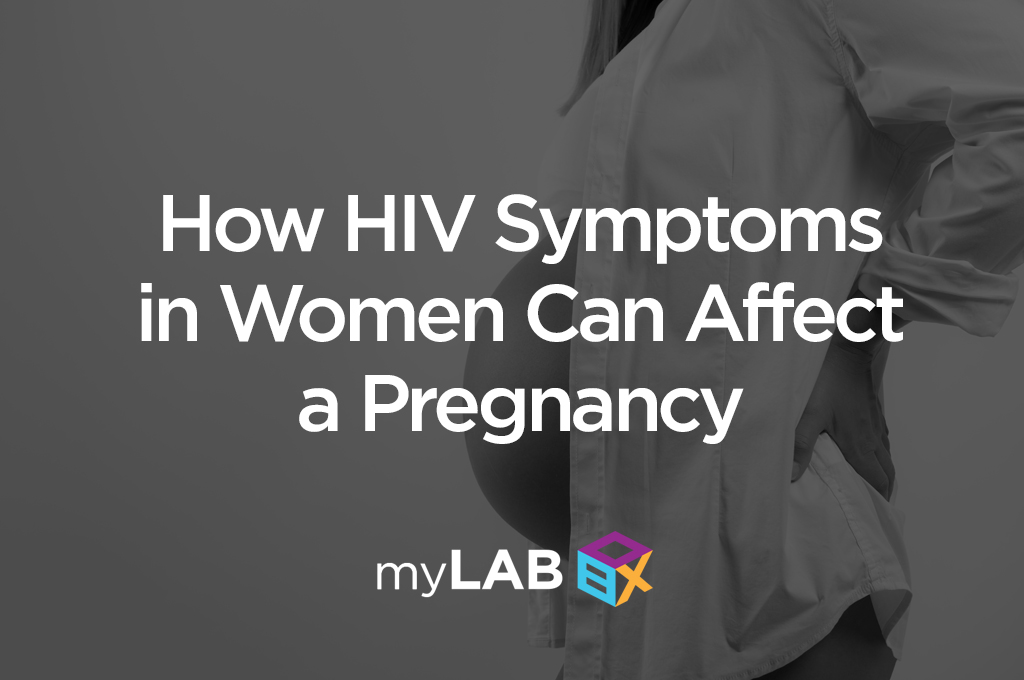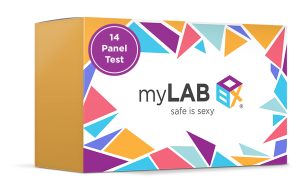How HIV/AIDS Symptoms In Women Can Affect Pregnancy

Human Immunodeficiency Virus (HIV) can affect anyone, but certain HIV symptoms in women can be even more dangerous. An HIV infection can spread to your baby as well.
Today, we’re going to examine the specific effects that HIV has on women. This particular sexually transmitted infection may tend to favor men, but women can easily be infected as well. According to the Centers for Disease Control and Prevention (CDC), over one million Americans are living with HIV. In 2016, women made up roughly 19% of all HIV diagnoses within the United States.
What Are the Main HIV Symptoms in Women?
Before we discuss how HIV symptoms in women can affect pregnancy, let’s look at the big picture. According to the CDC, 87% of HIV diagnoses in women were attributed to heterosexual sex. The other 13% of infections were due to intravenous drug use.
Overall, the symptoms of HIV in women are quite similar to HIV symptoms in men. Across the board, the virus tends to attack the body in three distinct stages:
- Acute illness: For 80% of infected people, the first symptoms usually occur within two-to-four weeks. Those symptoms can often resemble a case of the flu. This may include a fever, a sore throat, severe headaches, fatigue and nausea. It is also very possible that someone in this stage will not display any visible symptoms at all.
- Asymptomatic period: As the name suggests, this is a period during which the infection does not show any detectable symptoms.This stage can last ten years or more. Of course, this does not mean that the virus is dormant. In fact, it is replicating inside your body at this point. It’s still causing damage to your immune system as it “charges up” for a final assault.
- Advanced infection: During this stage, your immune system is severely weakened. The advanced infection has graduated into AIDS, making your body much more susceptible to illness. At this point, even everyday health concerns like a cold can become life threatening. This is because the body doesn’t have the resources it needs to combat them.
That’s a general overview of how HIV can affect anyone. That said, there are some critical differences that women need to know about.
HIV symptoms in women may also include:
- Increased frequency of vaginal yeast infections
- Abnormal menstrual cycles
- Severe pelvic inflammatory disease (PID)
- An increased risk of cervical cancer
Fortunately, women tend to pay closer attention to our bodies. Our regular menstrual cycles being disrupted can often act as a potential “alarm bell” that something might be wrong. So at least there is sort of a silver lining!
How Does HIV Affect a Pregnancy?
We’ve established that HIV can affect anyone, regardless of sex and lifestyle. However, pregnant women should be extra cautious. They may be in danger for two! HIV symptoms in women can also affect unborn and newborn babies if certain precautions aren’t taken. When an HIV-positive woman is pregnant, the virus may be accidentally passed on to her child.
During birth, a mother might transmit the virus to her child. It is also possible for this to happen after birth, during regular breastfeeding. Fortunately, this isn’t a sure thing. Thanks to modern medical treatment, the risk of transmission from mother to child can be lowered significantly. An HIV-positive woman can have a happy and healthy HIV-negative baby.
Of course, treatment can only be prescribed if a woman is aware that the virus is present.
Ladies, Test Today to Learn Your Status
Sadly, there still isn’t a cure for HIV. However, there are plenty of ways you can protect yourself. Beyond safe sex, the best possible protection is to take total control of your sexual health. How can you do that? With regular testing! The earlier you know your HIV status, the more options you’ll have in the long run.
Being tested is the only way to know for sure whether or not you have HIV. You can test either at the clinic, or take an HIV home test for maximum convenience. With myLAB Box’s home testing kits, you can even test for other STIs, including chlamydia, syphilis, herpes and more.
myLAB Box’s lab-certified results are the same quality you would receive from a clinic or doctor’s office. If you do end up testing positive, myLAB Box will set up a phone consultation with a sexual health expert who can discuss your results and prescribe treatment.
As we mentioned, HIV symptoms may not show up for years. Early testing will arm you (and your baby!) with the knowledge you need to get treated and live a healthy life regardless of your results.
Reviewed by Luis Ferdinand M. Papa, MD, MHA
Popular Tests

Total Box
14 Panel STD Test
In Stock – Free Shipping
$369 – $399
